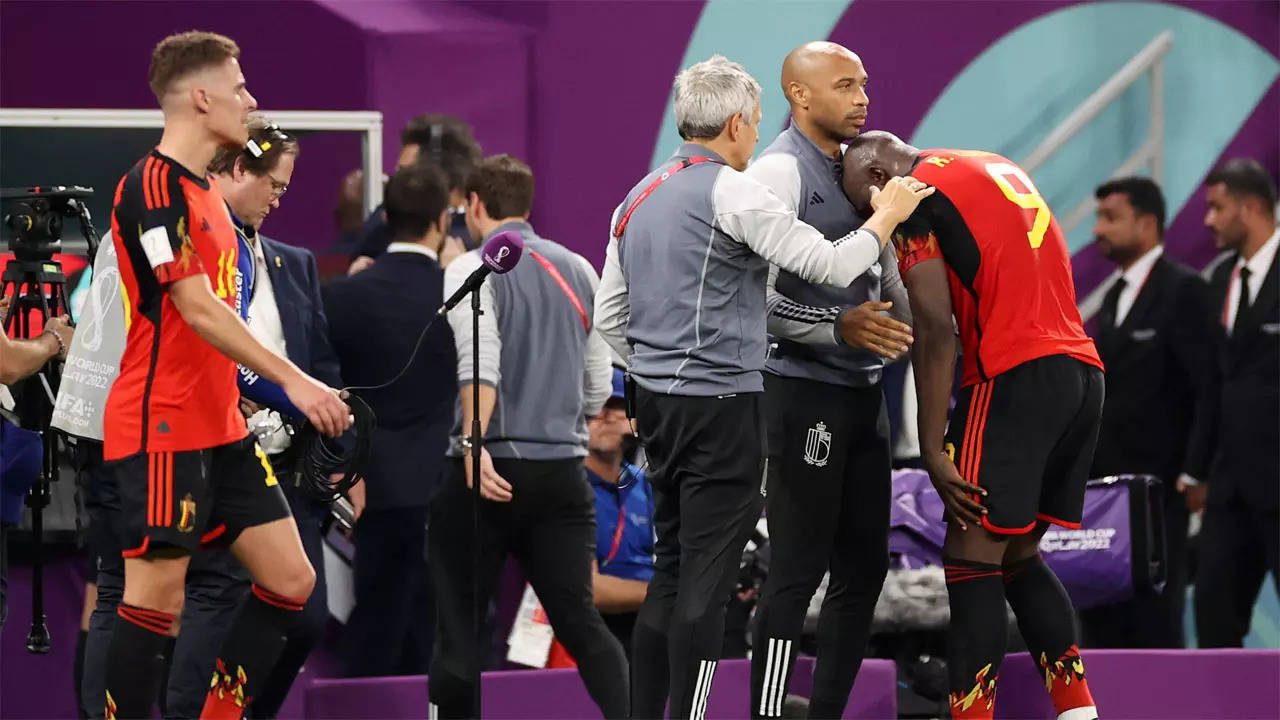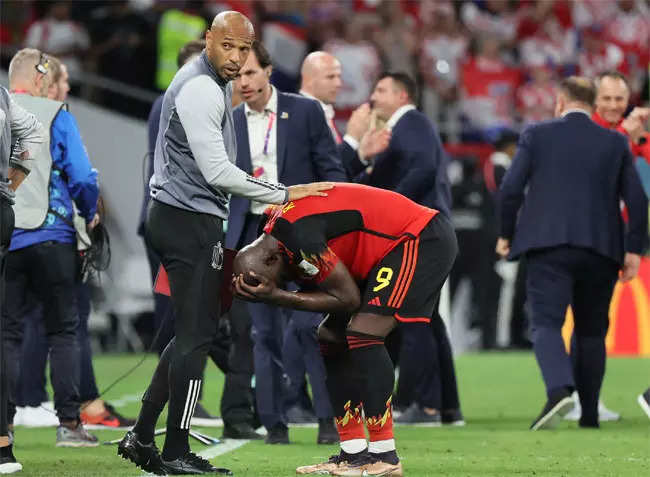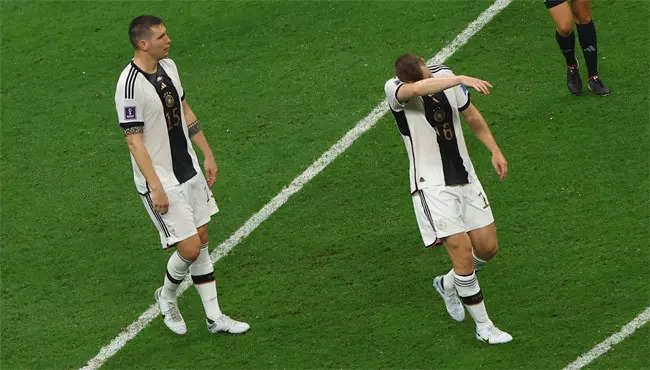
The wizardry of Luis Figo. The artistry of Rui Costa. The guile of Dennis Bergkamp. The steel of Jaap Stam. The tenacity of Frank Lampard. The magic of Paul Scholes. The bravery of Vincent Kompany. The trickery of Eden Hazard. The brilliance of Juan Roman Riquelme. The absolute everything of Lionel Messi. All these great players share infamy — they were all part of a 'golden generation' that never really stood up and made themselves count when it mattered the most. And these are just a few of the illustrious names. The who’s who of modern-day football have been unable to shrug off the curse of being tagged as the golden generation. David Beckham, Ashley Cole, Edgar Davids, Sergio Aguero, Wayne Rooney, Javier Mascherano, Carlos Tevez, and Edwin Van der Sar — all collected medals and trophies for fun for their clubs, but never managed to replicate that success on the international level.
It’s not a new phenomenon. The golden generation of the masterful Netherlands team of the early and mid-70s under the father of 'Total Football', Rinus Michels was also meant to be 'The one'. The Netherlands at the 1974 World Cup were in swashbuckling form and swatted everyone aside. They beat Argentina in the second round, and knocked out the defending champions Brazil in the quarter finals — in all scoring 14 goals in the first six matches and conceding just one. They lost to West Germany in the final and the so-called golden generation faltered at the final hurdle.
The real measure of success
Some might argue that winning international tournaments isn’t an easy task and the number of opportunities is limited and come once every two to four years in the form of the Africa Cup of Nations, the World Cup or the European Championships. Take the case of the Belgium golden generation that crashed out of the Qatar World Cup in a tame fashion. The Belgium golden generation was one that was heralded at the start of the 2014 World Cup in Brazil. Eden Hazard was 22 as was Kevin De Bruyne. The defence was marshalled by the likes of Vincent Kompany, Toby Alderweireld and Jan Vertonghen — all in their mid-20s. They had a 21-year-old Romelu Lukaku who had just started making a name for himself in the Premier League. That’s just a few names as Belgium had players plying their trade in the top clubs in Europe. Greatness beckoned, the sky was the limit and whatnot.

Belgium's French assistant coach Thierry Henry consoles forward Romelu Lukaku after 2022 World Cup exit. (AFP photo)
Belgium actually did relatively well in the 2014 World Cup. Inexperience came to the fore when they crashed out against Argentina — who had Lionel Messi pulling the strings. Argentina were not that great, but Belgium were insipid and couldn’t rise up to the occasion, going down to the Albiceleste in the quarter-finals 1-0.
Two years later, the Belgium team still had their spine intact and the likes of Hazard, and Lukaku had more experience. It was Belgium’s time to shine. Once again, they flattered to deceive as they ended up losing to surprise quarter finalists Wales in Euro 2016 by a scoreline of 3-1. Wales were there for the taking but Belgium choked and couldn’t muster a response against an inspired Welsh side. Time and again Belgium had the chance to go all the way but never really made it count. Belgium became the number 1 team in the world, reached semi-finals, and played some good football. Does that count as success? Relatively speaking, no it doesn’t. It’s the trophies that are remembered. Do you really remember who came in third at the 2006 World Cup?
Right men, wrong man?
It was the 2018 World Cup where Belgium blew their best chance and ironically had the best time under its golden generation. Managed by Roberto Martinez (who quit as the manager of the Red Devils after their Qatar World Cup group stage exit), the expectations were enormous as this was a team that had the top players who were winning week in and week out. It was reported that before hiring Martinez, the Belgium FA interviewed Louis Van Gaal (a bona fide coaching legend) and Ralf Rangnick (an astute tactician who recently had a rather ill-fated interim stint at Manchester United). Perhaps that was the mistake Belgium made. Handing over the keys to its reserves of gold to a man with perhaps just about an average track record. Some may point out that Martinez did win the FA Cup with unheralded Wigan in 2013, before leaving for Everton, but in the same year (2012-13) Wigan were relegated from the Premier League. after eight seasons in the highest level of English domestic football.
The manager argument actually is handsomely blown away by the underachieving England golden generation. England under Sven Goran Eriksson played in the 2002 World Cup, 2004 Euros and the 2006 World Cup. Each time they had a terrific squad and a manager who was considered hot property. Eriksson’s stock was high as his Lazio team of the late 90s were excellent to watch and they actually won trophies at a time when the likes of AC Milan, Inter Milan, Juventus and even AS Roma had some of the best players playing for them. Eriksson with Lazio won the Serie A, Coppa Italia, and the UEFA Cup and was an elite coach back then. So much so that Manchester United had lined him up as a replacement for the legendary Sir Alex Ferguson.
It just never came home for England under Eriksson. They lost to Brazil in 2002 in the World Cup quarter-finals (1-2), Portugal in the 2004 Euros (6-5 on penalties after a 2-2 draw) and then once again to Portugal in the 2006 at the quarter-final stage of the FIFA World Cup (1-3 on penalties after a 0-0 draw). The expectations of the golden generation weighed far too heavily on players that were serial winners.
So it’s perhaps not a manager-related scenario, maybe like Martinez with Belgium. But Belgium did squander a glorious opportunity at the 2018 at the World Cup. Along with France, they were odds-on favourites to win the World Cup in Russia. Once they beat Brazil 1-0 in the quarter-finals, it felt like this was Belgium’s moment. But along came France in the semi-finals and Belgium were going home once again after a 0-1 result, though they did finish third. A bronze medal counts for something but not for a golden generation of a team that was blessed with abundance of talent in every position.
More of an exception, than the norm
To be fair, not all golden generations have turned out to be damp squibs. The Spanish national team from 2008-12 justified that tag handsomely. Led by the mastery of Xavi and Iniesta in the midfield, Spain won the 2008 Euros, and the 2010 World Cup, and then put on an absolute masterclass of a performance in the 2012 Euros final and demolished Italy 4-0. That was a good Italian team, but Spain made them look pedestrian and gave a performance that will be talked about for years. Just like the team and players who were a part of the golden generation from 2008-12.
Germany under Joachim Low from 2010-14 also had a really good group of players who came close to winning in the 2010 World Cup and the 2012 Euro, but lost in the semi finals against Spain and Italy respectively. They rose to the occasion in 2014 in Brazil — and handed an absolute hammering to the hosts in the semi finals (Germany beat Brazil 7-1) — and brought home the famous FIFA World Cup trophy for the fourth time, becoming the joint second most successful team in the history of the tournament along with Italy.

(Reuters photo)
Spain and Germany though are rare exceptions — teams that had world-class players and managed to deliver what was expected of them. Portugal under Figo, England under Beckham, Argentina under Messi — no, even if they win in Qatar, it won’t be considered a golden generation — and now Belgium under Eden Hazard and Kevin de Bruyne will perhaps always be remembered as the generation that had all the ‘gold’ but never really glittered.







